8 Great Stocks From Around the World
A popular, though risky, stock-picking strategy is to chase companies that aim to be great.

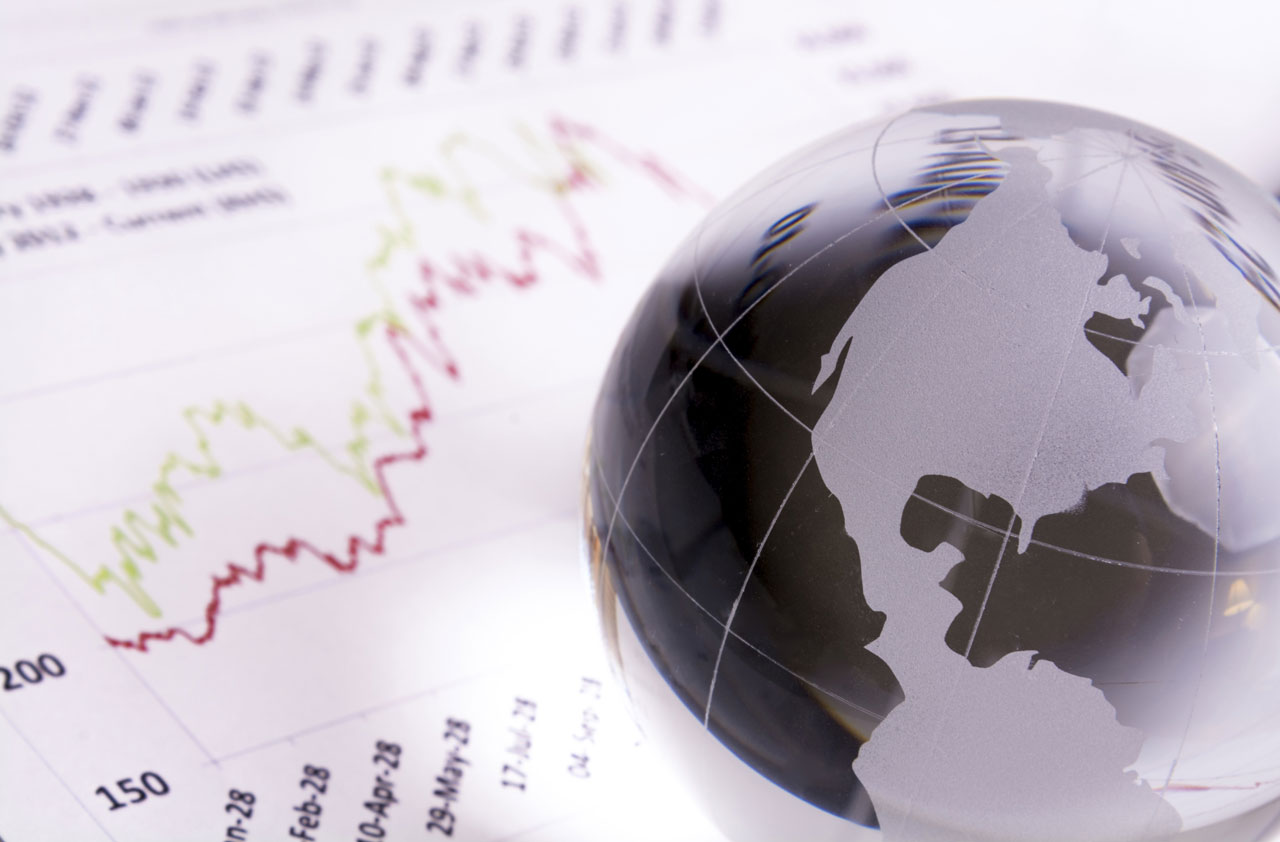
Profit and prosper with the best of Kiplinger's advice on investing, taxes, retirement, personal finance and much more. Delivered daily. Enter your email in the box and click Sign Me Up.
You are now subscribed
Your newsletter sign-up was successful
Want to add more newsletters?

Delivered daily
Kiplinger Today
Profit and prosper with the best of Kiplinger's advice on investing, taxes, retirement, personal finance and much more delivered daily. Smart money moves start here.

Sent five days a week
Kiplinger A Step Ahead
Get practical help to make better financial decisions in your everyday life, from spending to savings on top deals.

Delivered daily
Kiplinger Closing Bell
Get today's biggest financial and investing headlines delivered to your inbox every day the U.S. stock market is open.

Sent twice a week
Kiplinger Adviser Intel
Financial pros across the country share best practices and fresh tactics to preserve and grow your wealth.

Delivered weekly
Kiplinger Tax Tips
Trim your federal and state tax bills with practical tax-planning and tax-cutting strategies.

Sent twice a week
Kiplinger Retirement Tips
Your twice-a-week guide to planning and enjoying a financially secure and richly rewarding retirement

Sent bimonthly.
Kiplinger Adviser Angle
Insights for advisers, wealth managers and other financial professionals.

Sent twice a week
Kiplinger Investing Weekly
Your twice-a-week roundup of promising stocks, funds, companies and industries you should consider, ones you should avoid, and why.

Sent weekly for six weeks
Kiplinger Invest for Retirement
Your step-by-step six-part series on how to invest for retirement, from devising a successful strategy to exactly which investments to choose.
A popular, though risky, stock-picking strategy is to chase companies that aim to be great. You know the drill: Try to identify the next Amazon.com before everyone else catches on. Choose wisely and you strike it rich. Guess wrong and you can lose your money.
Here’s a simpler and less-risky approach: Buy companies that have already achieved greatness — and that can maintain a high level of excellence. The U.S. is home to hundreds of such luminaries. Less well known are the foreign firms that are considered best in class.
We went looking for the greatest companies outside the U.S. and came up with eight proven picks. To make the list, the businesses had to be industry leaders. They also had to possess substantial financial resources to weather rough economic times. Finally, we sought companies that had significant catalysts to drive the next phase of their growth.
All of our picks have U.S.-traded shares. Two caveats: First, any foreign investment is subject to risks from currency swings. Money invested overseas translates to fewer greenbacks when the dollar is strong against foreign currencies; when the buck is weak, more greenbacks. Second, some countries withhold taxes on dividends paid to foreigners. Check with your tax adviser before buying any foreign security for income.
Prices and symbols are for U.S.-traded shares. Prices and related figures are as of August 23. Earnings estimates are for calendar 2016 and 2017, unless otherwise noted. Price-earnings ratios are based on estimated 2016 earnings, unless otherwise indicated.

Alibaba Group Holding
- Symbol: BABAHeadquarters: Hangzhou, ChinaShare price: $95.79Market capitalization: $236.9 billionEstimated earnings per share: 2016, $3.30; 2017, $4.21Price-earnings ratio: 29P/E ratio on 2017 estimate: 23Dividend yield: 0%
- The business: Founded in 1999, Alibaba has become China's biggest mobile e-commerce firm, providing retail and wholesale shopping, travel booking, cloud computing and payment services. Although often compared to Amazon.com (AMZN), Alibaba primarily connects buyers and sellers rather than selling goods itself. Much of its revenue comes from ads on its various websites.
- Track record: Revenue surged from $451 million in 2008 to $15.2 billion in the fiscal year that ended in March 2016. Unlike Amazon, which has been in the red for much of the past few years as it has spent heavily, Alibaba has been consistently profitable. It generated record profits from operations of $4.5 billion, or $2.60 per share, in the last fiscal year. And measured by gross merchandise volume (the value of goods it transacts), Alibaba now is the world's largest online commerce firm. Yet the stock, which topped $120 after its public offering in 2014, was half that price by early this year and remains 20% below its record high.
- Reasons to own it: Doubts about Alibaba's long-term growth had weighed on the stock. Those fears lessened after the company reported results for the quarter that ended June 30: Despite China's slowing economy, Alibaba's revenue jumped 59%, to $4.8 billion, from the same period a year earlier. The number of users transacting business on Alibaba websites via mobile devices rose 39%, to 427 million. Investment firm Needham & Co. sees its best measure of Alibaba’s per-share operating income rising 9% this fiscal year and 25% next, fueled by the company’s huge success in driving use of its websites on mobile devices. Brokerage Raymond James says another long-term draw is the potential of Alibaba's non-retail businesses, including cloud computing. For sure, this is a high-risk stock, and plenty could go wrong. But it's a great way to bet on China's rising consumer culture.

Anheuser-Busch InBev
- Symbol: BUDHeadquarters: Leuven, BelgiumShare price: $126.45Market capitalization: $203.3 billionEstimated earnings per share: 2016, $3.70; 2017, $4.77Price-earnings ratio: 34P/E ratio on 2017 estimate: 26Dividend yield: 3.6%
- The business: Anheuser-Busch InBev is the world's biggest brewer, formed when Belgium's InBev bought Anheuser-Busch in 2008. Now AB InBev is buying its main rival, SABMiller, creating a titan that will own almost 30% of the global beer market, with more than 200 brands, including Budweiser, Corona, Foster’s, Miller, Peroni and Stella Artois.
- Track record: Despite a weak global economy and competition from the craft beer trend, AB InBev delivered strong growth from 2010 through 2014. Sales rose from $36 billion to $47 billion, and earnings per share rose from $2.50 to $5.54. Wall Street loved the story, and the stock more than doubled. But in 2015, the growth streak ended as sales weakened and volatility in currency exchange rates squeezed profits. This year brought more woe, as recessions in Brazil and Argentina — two of AB InBev's major markets — took a toll. Overall, second-quarter profits slid 13% from the year-earlier period as the total amount of beer sold fell 1.7%.
- Reasons to own it: Despite this year's earnings slump, the stock is hovering just below its 52-week high. Wall Street expects SABMiller to fuel another growth streak for AB InBev, as it adds a slew of beer brands while slashing costs. What's more, SABMiller is dominant in Africa, where the volume of beer sold is expected to grow at three times the global rate over the long term. Analysts on average expect AB InBev's earnings to rebound from $3.70 per share this year to $4.77 in 2017. That would leave the stock highly valued, selling for 26 times estimated 2017 profits. Bulls argue that that’s a reasonable valuation given the company's premier brands, growth outlook and the stock's 3.6% dividend yield. "We believe the dominant global brewer deserves to be a core holding for long-term investors," says CLSA, a Hong Kong-based investment firm.

Nestlé
- Symbol: NSRGYHeadquarters: Vevey, SwitzerlandShare price: $80.79Market capitalization: $249.2 billionEstimated earnings per share: 2016, $3.42; 2017, $3.45Price-earnings ratio: 24P/E ratio on 2017 estimate: 23Dividend yield: 2.9%
- The business: Over the past 150 years, Nestlé has risen to become the world's largest food and drink company, with 2015 revenue of about $92.7 billion . Its best-known brands include Perrier, Gerber, Kit Kat, Purina, DiGiorno frozen pizzas, Lean Cuisine and Dreyer’s ice cream .
- Track record: In a slow-growing world economy, Nestlé's own growth has suffered in recent years. Tougher competition has bitten into some of its brands. And what had been a source of strength — the company's huge sales in developing countries (43% of Nestlé's total) — has become a drag as many of those economies have weakened. In 2013, 2014, and 2015, Nestlé fell short of its annual revenue growth target rate of 5% to 6% (excluding the impact of acquisitions). Until recently, that had capped the stock's progress, leaving it stuck in a narrow trading range since mid-2014.
- Reasons to own it: In late June, Nestlé's board of directors surprised investors by choosing an outsider as the company's next chief executive. Ulf Mark Schneider, 50, will take the helm on Jan. 1, 2017. He is currently CEO of Fresenius SE, one of Germany's biggest health care firms. Many analysts saw the move as a sign that Nestlé, in an attempt to address shifting consumer preferences, wants to stress nutrition, health and wellness in developing new food products. Investors have applauded: The stock has edged up to all-time highs. Research firm S&P Capital IQ believes Schneider is "the right candidate to unlock the vast potential value held within Nestlé’s portfolio." Success isn’t guaranteed, of course, and the stock isn't cheap. But Nestlé’s robust finances and decent dividend offer investors "a safe haven amid ongoing market volatility," S&P says.

Royal Dutch Shell
- Symbol: RDS.AHeadquarters: The Hague, NetherlandsShare price: $50.06Market capitalization: $179.6 billionEstimated earnings per share: 2016, $1.70; 2017, $4.18Price-earnings ratio: 29P/E ratio on 2017 estimate: 12Dividend yield: 7.5%The business: With revenue of $272 billion in 2015, Royal Dutch is the world's second-biggest energy company not controlled by a government (ExxonMobil XOM is number one). Royal Dutch, which dates back to 1833, explores for, refines and sells oil and natural gas worldwide.
- Track record: With the plunge in energy prices, Royal Dutch’s results have been abysmal for the past two years, as they have been for the entire energy sector. Revenue in 2015 was down 45% from the 2011 peak. The company earned just $1.9 billion in 2015, down 87% from 2014. Royal Dutch’s U.S.-listed shares lost half their value from the 2014 high to the low early this year, before rebounding modestly along with oil prices.
- Reasons to own it: Royal Dutch is worth a look by any investor now hunting for depressed energy stocks. For starters, the U.S. shares boast an enormous 7.5% dividend yield. That's the highest of any major energy firm. An extraordinarily high yield often signals Wall Street’s belief that a company may cut its dividend. But bulls on Royal Dutch are convinced that it will protect the payout. That brings us to the second part of the stock's appeal: Royal Dutch is reining in capital spending sharply and selling low-returning assets to raise cash for dividends and debt reduction. Barron's magazine was impressed enough with the company's new fiscal discipline to recently dub it "the best big oil stock." Also, if energy prices keep creeping up, Royal Dutch could resume growing in the next few years, thanks in part to its recent takeover of natural gas giant BG Group. The deal makes Royal Dutch the world's biggest gas producer, with rich, low-cost gas (and oil) fields off the Brazilian coast. The huge yield notwithstanding, this isn't a stock for widows and orphans. But if Royal Dutch pulls off its turnaround, high risk could morph into high returns.

Sanofi
- Symbol: SNYHeadquarters: Paris, FranceShare price: $39.05Market capitalization: $100.5 billionEstimated earnings per share: 2016, $3.10; 2017, $3.05Price-earnings ratio: 13P/E ratio on 2017 estimate: 13Dividend yield: 4.3%
- The business: Sanofi ranks among the world's biggest drug companies. Its $39.4 billion in 2015 sales make it larger than U.S. giants Eli Lilly (LLY) and Bristol-Myers Squibb (BMY) combined. The 43-year-old company is a major name in drugs for diabetes, cancer and rare diseases. It also produces vaccines for illnesses such as typhoid and dengue, and it owns biotech firm Genzyme.
- Track record: Like many of its drug-titan peers, Sanofi has suffered in recent years from rising competition from cheaper generic drugs and from new treatments. That has hurt Sanofi's biggest seller, the long-acting insulin Lantus. Rising sales of new Sanofi drugs for multiple sclerosis and rare diseases have partly offset other declines. But overall the firm's sales and profit have been stagnant for five years. The stock has dropped 17% over the past 12 months, back to 2012 levels, and that has pushed up the dividend yield to a hefty 4.3%.
- Reasons to own it: Sanofi is aiming to reignite growth. In November 2015, it detailed plans to boost research spending, cut other costs and refocus some businesses. The company also highlighted the potential market hits already in its pipeline, with 18 new drugs or other products scheduled to be launched between now and 2020. Research firm Morningstar says strong sales in emerging nations, particularly of vaccines, are a major long-term plus. Sanofi also is sharply boosting its presence in over-the-counter consumer products (such as painkillers and cold treatments) by acquiring the consumer arm of German drug giant Boehringer Ingelheim. "Our long-term conviction in the pipeline as well as continued strength from vaccines, consumer and rare disease businesses further strengthens our confidence" in Sanofi's appeal, Morningstar says. For patient investors, this is a chance to buy low.
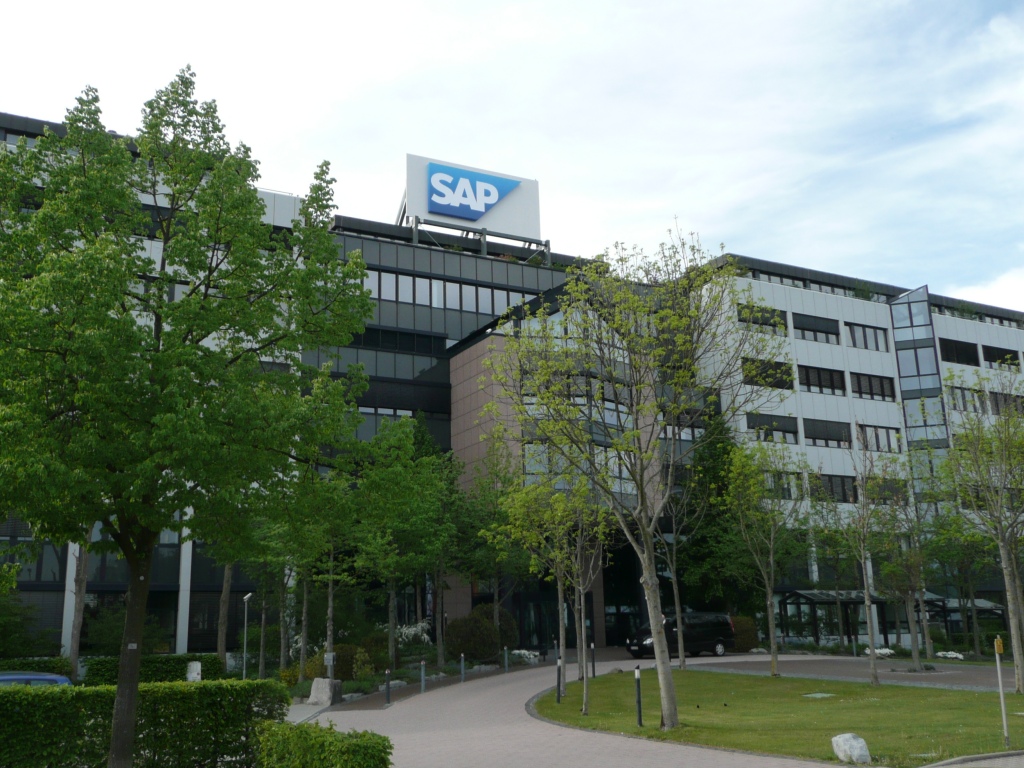
SAP
- Symbol: SAPHeadquarters: Walldorf, GermanyShare price: $87.78Market capitalization: $105.2 billionEstimated earnings per share: 2016, $3.90; 2017, $4.41Price-earnings ratio: 22P/E ratio on 2017 estimate: 20Dividend yield: 1.5%
- The business: SAP is Europe's largest software company and the third-largest worldwide, after Microsoft (MSFT) and Oracle (ORCL). Founded in 1972, SAP provides myriad software programs for businesses, managing such functions as finance, human resources, logistics and data storage.
- Track record: From its 2002 low through 2012, SAP stock was a big winner, rising about 800%, or 24% annualized, and far outperforming the average blue chip. But since 2012, the shares have stagnated. SAP has been aggressively buying smaller software firms and spending heavily on research, planning for the shift toward software delivery to clients via the Internet (the cloud). Although annual revenues rose from $16.1 billion in 2011 to a record $23.5 billion in 2015, earnings per share fell 11%. What's more, some investors feared that SAP clients would balk at the firm's latest software-upgrade plan, known as S/4 HANA. But the second quarter of this year may have marked a turning point: SAP's software sales rose a larger-than-expected 7% from the same period in 2015, led by cloud software demand. The stock jumped.
- Reasons to own it: Brokerage Credit Suisse says the second quarter demonstrated that SAP is "successfully managing the progressive move to the cloud." What's more, a surprising 40% of the companies signing up for the new S/4 HANA business-application software suite were first-time clients, which is a good sign. If SAP’s huge base of longtime clients shifts to S/4 HANA as expected, the company "stands to regain business momentum over the next several years," says investment research firm Cowen & Co. A pickup in earnings also could lead to a more generous dividend.

Siemens
- Symbol: SIEGYHeadquarters: Munich, GermanyShare price: $120.95Market capitalization: $97.9 billionEstimated earnings per share: 2016, $7.93; 2017, $8.71Price-earnings ratio: 15P/E ratio on 2017 estimate: 14Dividend yield: 3.2%
- The business: Siemens is a 169-year-old conglomerate that includes a host of manufacturing and technology businesses. Products include gas and steam turbines, wind-power systems, medical-imaging equipment, factory-automation systems and energy-management controls for buildings.
- Track record: Like its U.S. rival General Electric, Siemens has struggled to grow amid the anemic global economy that has followed the financial crisis. From 2009 through 2015, annual revenue was mostly stuck at about 75 billion euros (about $85 billion at the current euro-dollar exchange rate). The company also had some missteps — such as buying a major oilfield equipment maker just before energy prices dived. In 2015, operating earnings rose just 1% from 2014, disappointing investors. Early this year, Siemens' shares fell to their lowest level since 2012.
- Reasons to own it: The company's fortunes may be turning. Siemens posted surprisingly strong growth in orders in the April-June quarter. The value of total new orders rose 9% from a year earlier, excluding the effects of currency fluctuations. Siemens got a boost in part from demand for big-ticket power-plant and wind-farm equipment from customers in the U.S., the United Kingdom and Bolivia, among other countries. What's more, for the second time since December, the company raised its forecast for 2016 earnings. That lit a fire under the stock, which has surged 11.5% since August 2. S&P Capital IQ notes that in recent years Siemens has been selling weak business lines to invest in higher-growth industries. If that payoff is beginning, investors can buy the stock at a still-reasonable P/E and earn a tidy 3.2% dividend yield to boot.

Taiwan Semiconductor
- Symbol: TSMHeadquarters: Hsinchu, TaiwanShare price: $28.50Market capitalization: $147.8 billionEstimated earnings per share: 2016, $1.88; 2017, $2.02Price-earnings ratio: 15P/E ratio on 2017 estimate: 14Dividend yield: 3.3%
- The business: Taiwan Semiconductor is the world's largest contract manufacturer of computer chips (meaning it makes chips designed and ordered by other companies). Total 2015 sales were $26.6 billion. Since its launch in 1987, the company has become a crucial supplier of chips to firms including Apple (AAPL), Broadcom (AVGO), Qualcomm (QCOM) and Nvidia (NVDA).
- Track record: Revenue and operating earnings both doubled from 2010 to 2015, thanks in part to hefty demand from Apple for chips for its iPhones. Taiwan Semiconductor's shares have nearly tripled since early in 2010, from $10 to almost $30. The company's momentum has continued in 2016. Revenue is expected to surge 20% in the third quarter, to $8 billion, as the firm ramps up production of the central processor chip for the iPhone 7, which Apple is expected to unveil in September. Analysts on average expect the company to earn $1.88 per share in 2016, rising 7%, to $2.02 in 2017.
- Reasons to own it: The chip business can be highly cyclical, which can mean wild short-term swings in the stocks. And there's always the risk of global recession, which could temporarily slash chip demand. With Taiwan Semi's shares near record highs, patient investors might want to wait for a pullback. But, says Credit Suisse, Taiwan Semiconductor's "long-term positives outweigh the short-term correction risk." The brokerage says the chip maker's competitive prowess should drive growth in three markets over the next few years: mobile phone upgrades, high-performance computing (artificial intelligence, for example) and the "Internet of Things" (the technology that facilitates networking of homes, factories, energy grids and much more). Rising free cash flow (cash profits after the capital expenditures needed to maintain a business) should also fuel rising dividends. The company boosted its payout by 30% in July.
Profit and prosper with the best of Kiplinger's advice on investing, taxes, retirement, personal finance and much more. Delivered daily. Enter your email in the box and click Sign Me Up.

-
 Look Out for These Gold Bar Scams as Prices Surge
Look Out for These Gold Bar Scams as Prices SurgeFraudsters impersonating government agents are convincing victims to convert savings into gold — and handing it over in courier scams costing Americans millions.
-
 How to Turn Your 401(k) Into A Real Estate Empire
How to Turn Your 401(k) Into A Real Estate EmpireTapping your 401(k) to purchase investment properties is risky, but it could deliver valuable rental income in your golden years.
-
 My First $1 Million: Retired Nuclear Plant Supervisor, 68
My First $1 Million: Retired Nuclear Plant Supervisor, 68Ever wonder how someone who's made a million dollars or more did it? Kiplinger's My First $1 Million series uncovers the answers.
-
 Dow Dives 878 Points on Trump's China Warning: Stock Market Today
Dow Dives 878 Points on Trump's China Warning: Stock Market TodayThe main indexes erased early gains after President Trump said China is becoming "hostile" and threatened to cancel a meeting with President Xi.
-
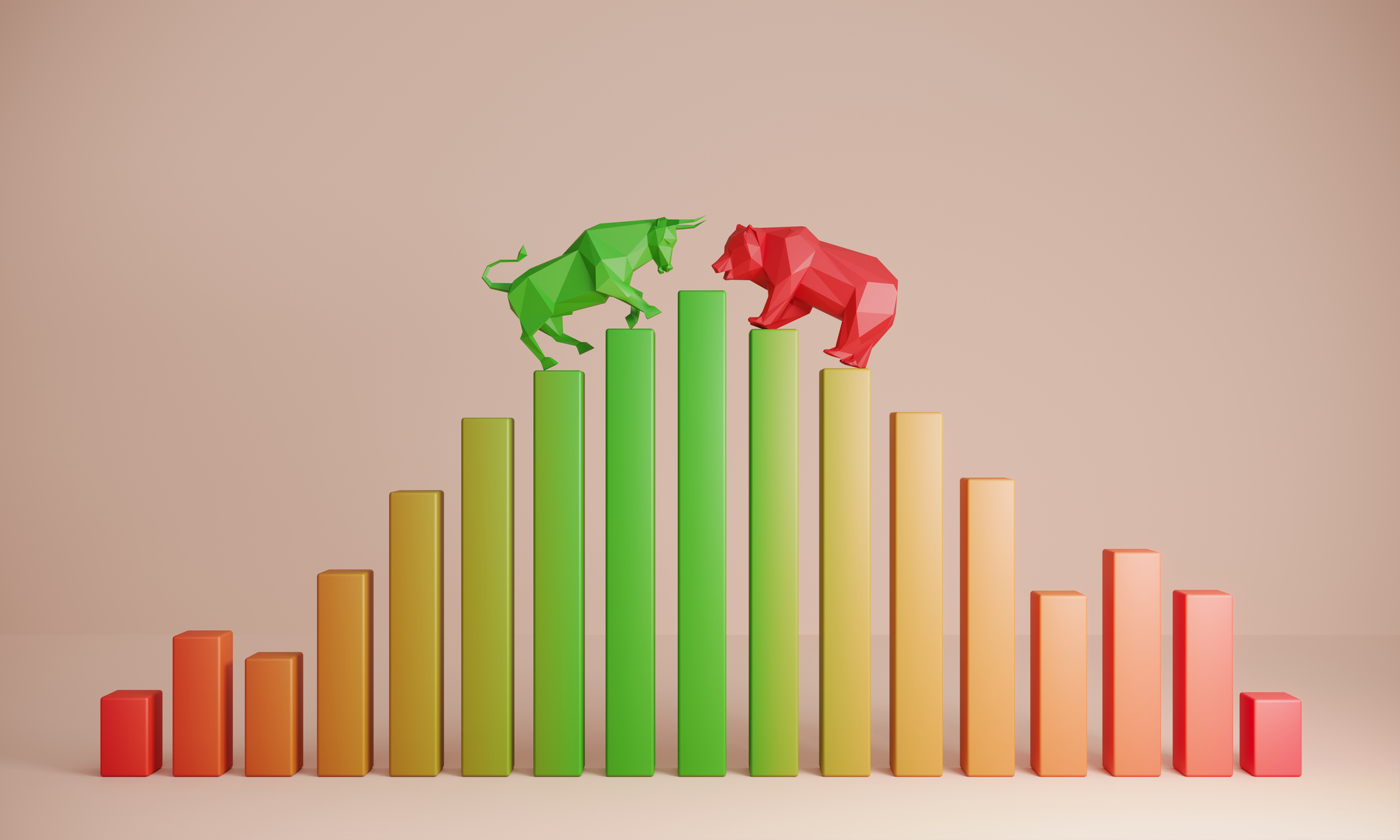 Dow Hits New Intraday High: Stock Market Today
Dow Hits New Intraday High: Stock Market TodayValue-hunters with big stakes in a particular component kept one of the main U.S. equity indexes in positive territory.
-
 Stock Market Today: Dow Dives 748 Points as UnitedHealth Sells Off
Stock Market Today: Dow Dives 748 Points as UnitedHealth Sells OffA services-sector contraction and a worse-than-anticipated consumer sentiment reading sent bulls scrambling Friday.
-
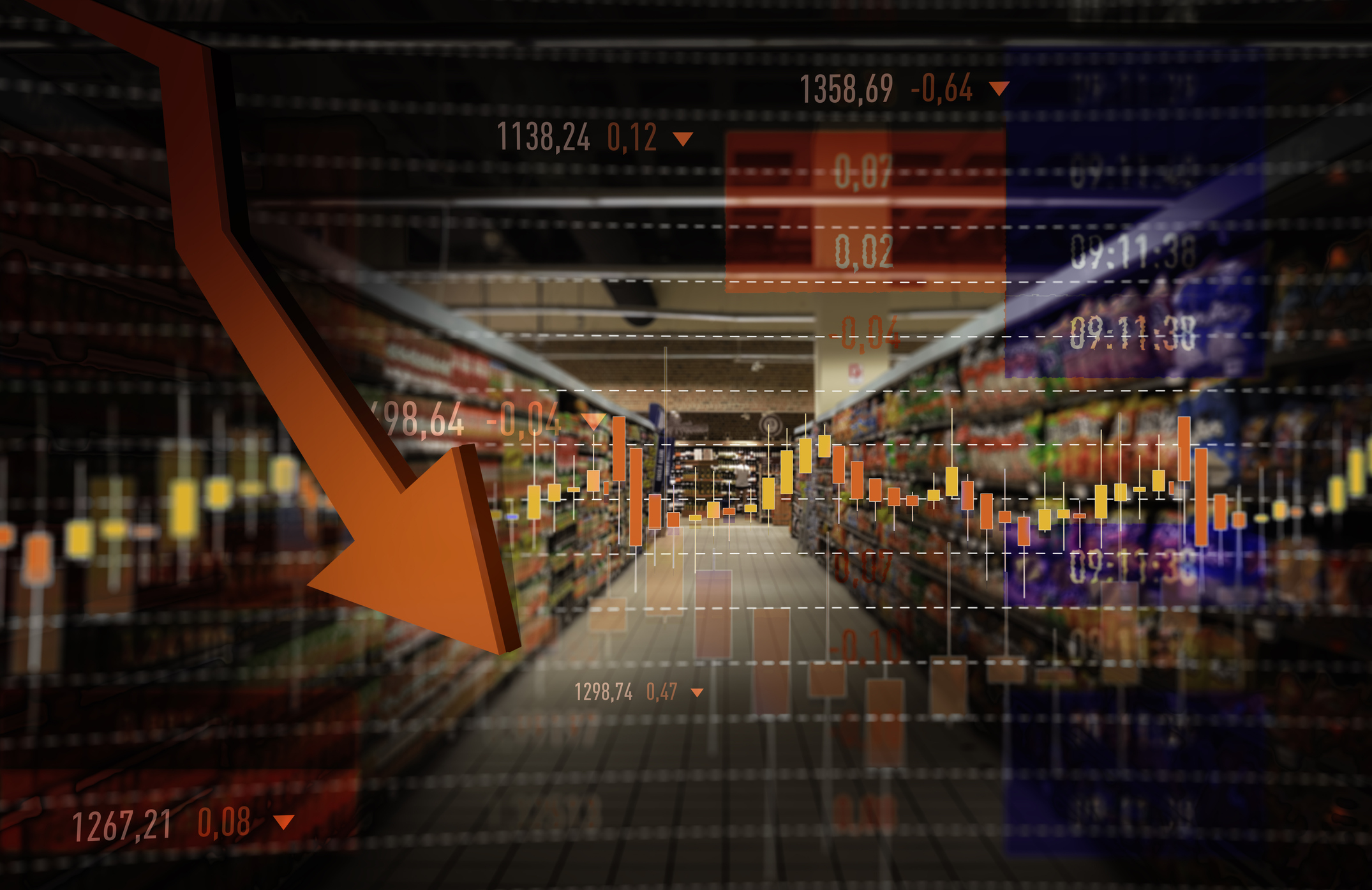 Stock Market Today: Growth Concerns Drag on Stocks
Stock Market Today: Growth Concerns Drag on StocksForward-looking commentary from a major retailer outweighed its backward-looking results as all three major equity indexes retreated on Thursday.
-
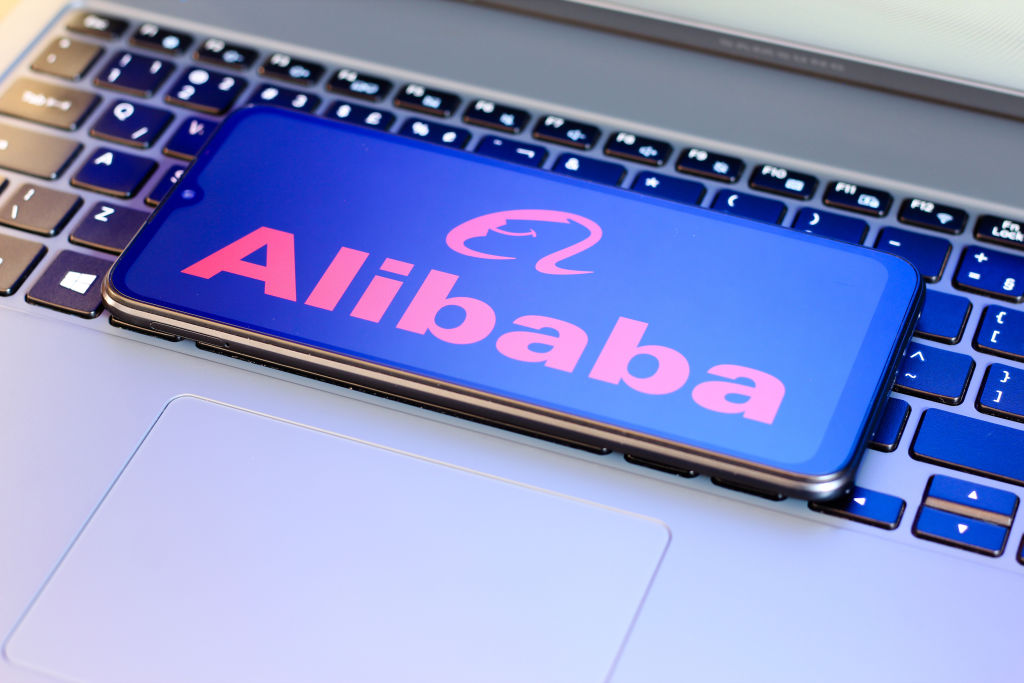 Why Alibaba Stock Is Soaring After Earnings
Why Alibaba Stock Is Soaring After EarningsAlibaba stock is higher Thursday after the China-based e-commerce platform beat expectations for its fourth quarter. Here's what you need to know.
-
 The 24 Cheapest Places To Retire in the US
The 24 Cheapest Places To Retire in the USWhen you're trying to balance a fixed income with an enjoyable retirement, the cost of living is a crucial factor to consider. Is your city the best?
-
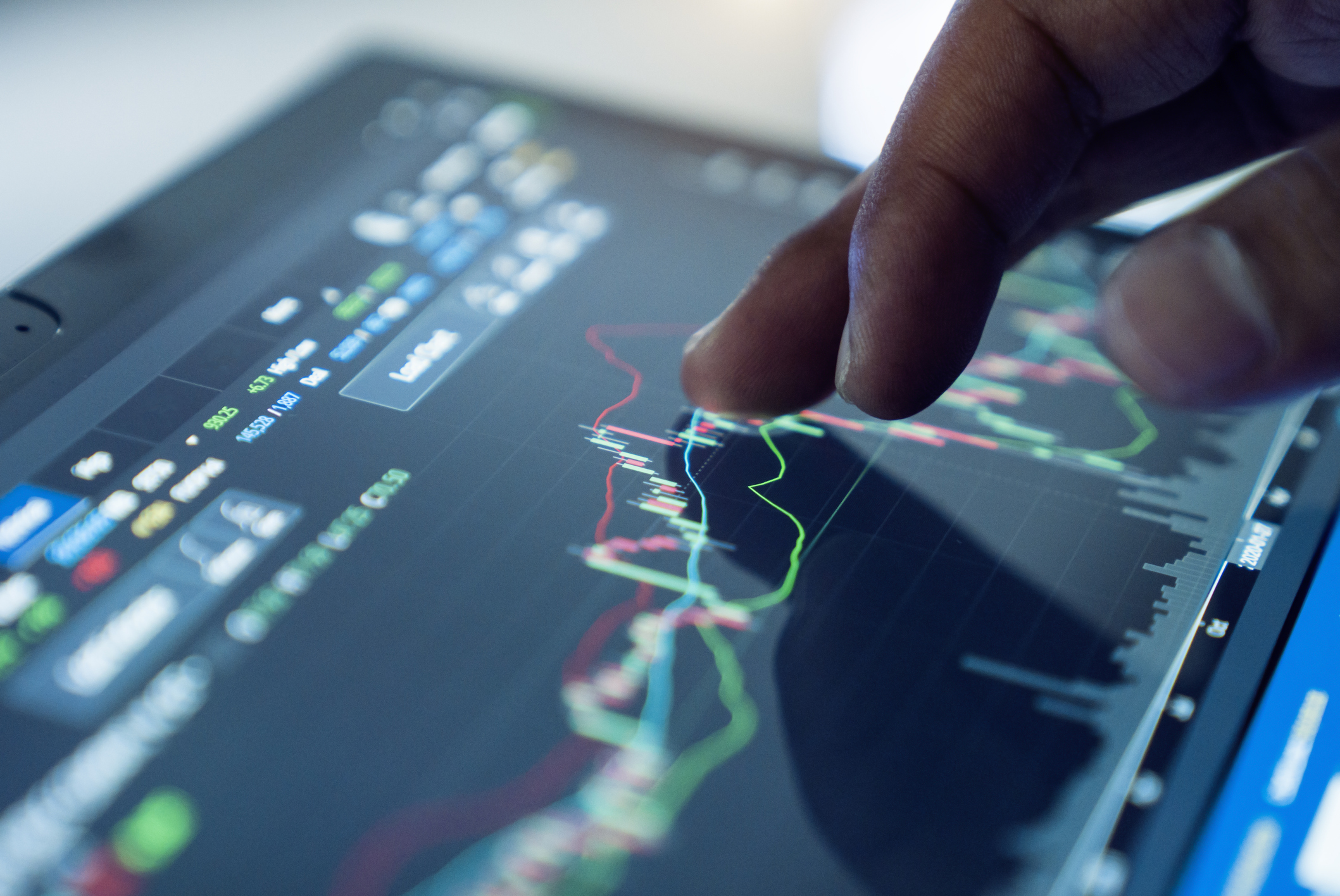
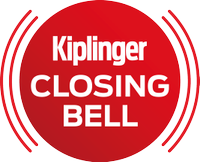 Stock Market Today: Dow Hits New High After Upbeat Inflation Data
Stock Market Today: Dow Hits New High After Upbeat Inflation DataThe Fed's preferred inflation gauge continues to cool. Markets shift focus to next week's jobs report.
-
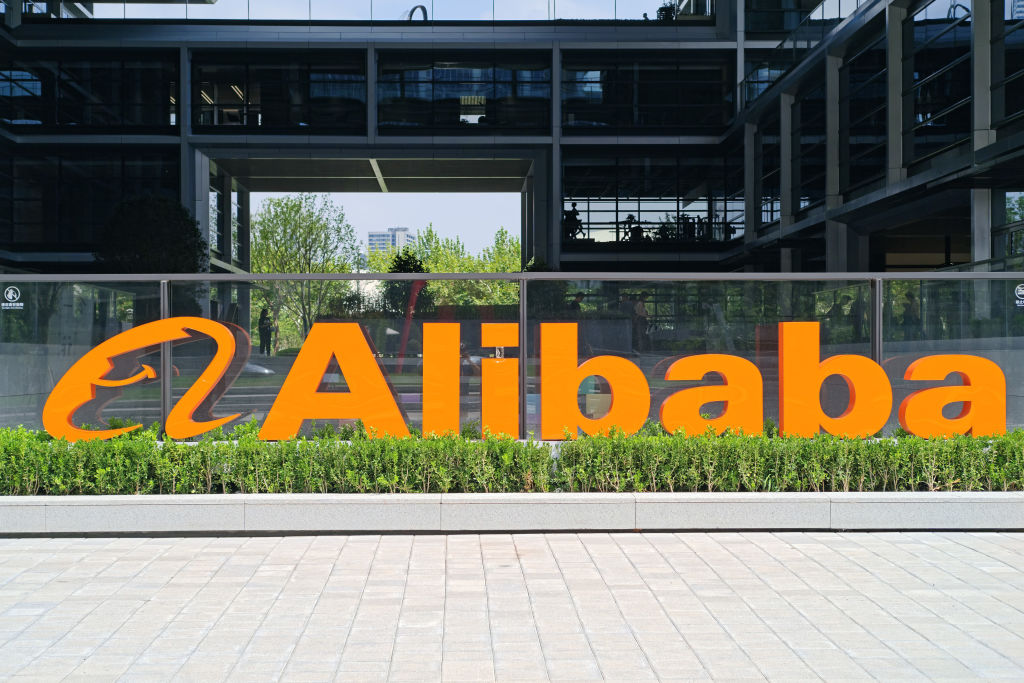 Alibaba Stock's Set to End September With a Bang. Here's Why
Alibaba Stock's Set to End September With a Bang. Here's WhyAlibaba stock is headed toward its best month since December 2022 and Wall Street sees even more upside ahead. Here's what you need to know.
